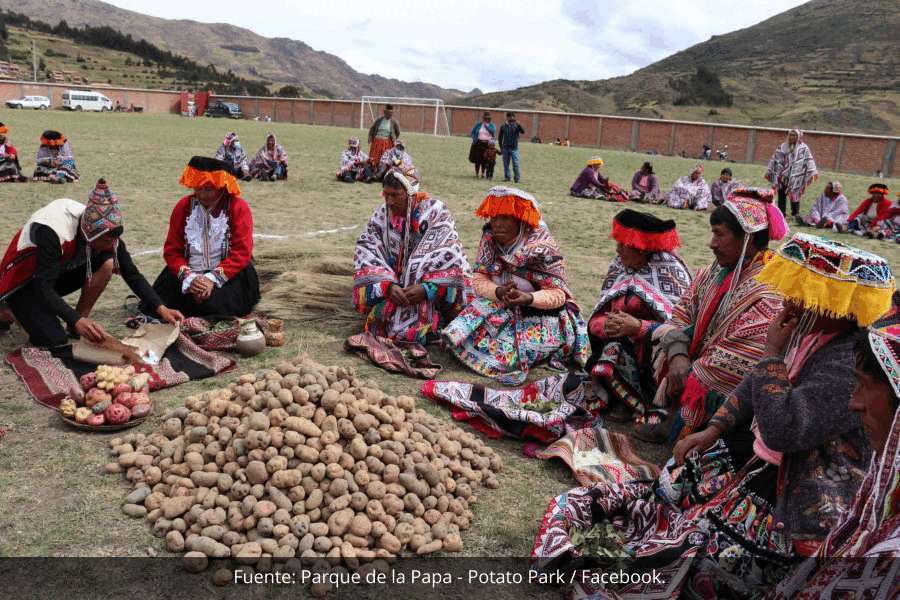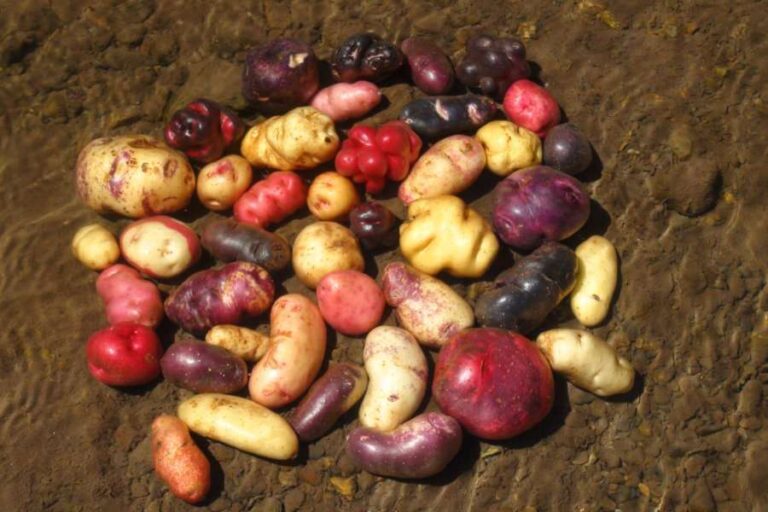Agrotourism agrotourism consists of recreational travel to a rural environment, i.e. visiting and learning about the activities of farms, villages, farms, among others. Generally, agrotourism operators do not have tourism as their main source of income, but rather agricultural and livestock production activities.

Located 45 minutes from the city of Cusco, in the district of Pisac, in the Peruvian province of Calca, is the Potato Park. A space of 7,238 hectares, managed by five indigenous communities: Amaru, Chawaytire, Pampallacta, Paru Paru and Sacaca, which have the support of several environmental organizations.
Agrobiodiversity
In 2020, the Potato Park was recognized by the Peruvian Ministry of Agriculture and Irrigation (MINAGRI) as an Agrobiodiversity Zone. This initiative has given value to the 1,330 potato varieties that are conserved there.
In Peru, Agrobiodiversity zones are geographic spaces determined by virtue of their native, cultural and ecological richness, in which indigenous peoples, according to their traditions, manage and conserve the genetic resources of their fields and ancient ecosystems.
Tourist activities
Visitors to this beautiful corner of Cuzco will be able to participate in agricultural activities and see exhibitions of native potato preservation techniques. Visitors will also be able to see exhibitions of traditional weavings, ceramics and jewelry, and learn how to make soaps and infusions with local natural herbs. The agrotourism proposal also includes enjoying culinary exhibitions, guided visits to the Kinsa Qocha lagoon and observing its natural beauty.
The park is home to vicuñas, alpacas, deer, viscachas, chinchillas, pumas, skunks and a wide range of hummingbirds.
The experience of visiting the Potato Park is accompanied by a warm welcome with typical songs and dances of the indigenous people of the area, who teach visitors part of their ancestral wisdom.



